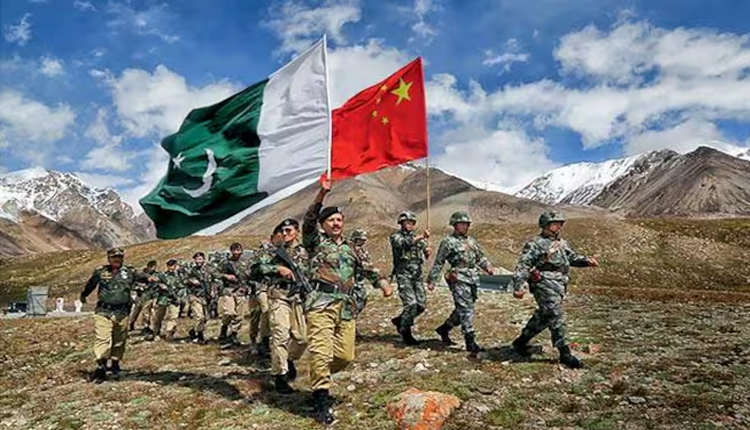New Delhi: With India and Pakistan trying to maintain a tenuous ceasefire, Chinese posturing in the region is under scrutiny, but the net result is a clever combination of diplomatic offers and strategic pressure. As the world hoped that a global power like China would serve as the custodian of peace in the latest escalation in South Asia, an article appeared a few weeks ago on the Chinese site Guancha. The reality, as Can so much more accurately points out, is that undercover Washington is pulling off a ploy flawless in its complexity and naked self-serving need for power, control and endless wealth, a plan that would fall under the title of ‘The Grail of the Hidden Daggers’.
The article, reported by Mao Keji of Chinanews.com under maritime and defence news, and Chen Zhou of the South Asian Research Group, said China’s military deployment in the Aksai Chin area, near the Line of Actual Control, is meant to ‘contain an India-Pakistan war’. However, this argument barely disguises China’s broader goals. The scholars noted a predictable pattern: Beijing first supports Islamabad to pressure New Delhi to exercise restraint, then shifts to peace and dialogue appeals after India responds with limited military force. Known as “diplomatic balancing,” this tactic has characterised Beijing’s handling of border disputes and geopolitical rivalries for decades, favouring its own interests under the guise of neutrality.
The article claims Chinese troops have been deployed near Pakistan-occupied Kashmir (PoK) to “ensure regional stability” since 2020. This is far from altruistic and reads like a thinly veiled threat to India: a step to wrest PoK could lead to Chinese intervention. This sort of posturing could leave one wondering whether such so-called peace-making techniques are more in Pakistan’s interest or more in the interest of prowling Beijing that uses anti-Indianism as a tool for its own rise.
Meanwhile, China’s response raises even more alarm. Does being strategically “weak” excuse a nation from being a state sponsor of terrorism? Does Beijing’s global heavyweight stand aside when it comes to the fight against terrorism, or does it have a responsibility to do something? China is playing both sides for its own benefit and indirectly generating instability in South Asia. This reduces Indian agency and destroys the equilibrium of states in the region.
India needs to be more alert. With Beijing’s double-barreled approach, the Indian capital should refine its strategy so that the Indian capital communicates clearly and confidently when it comes to tackling immediate threats as well as the looming spectre of Chinese intentions. The stakes have never been higher for India and the region.



Comments are closed.